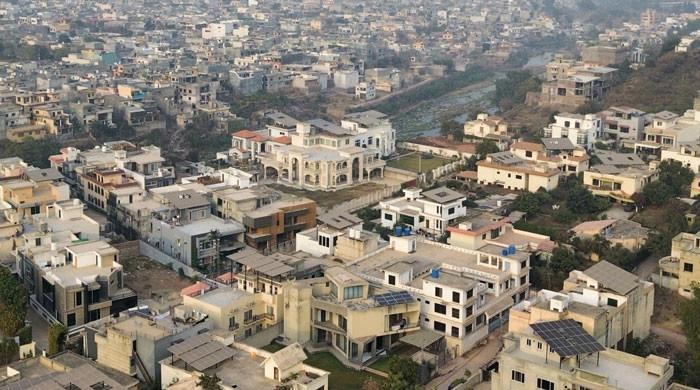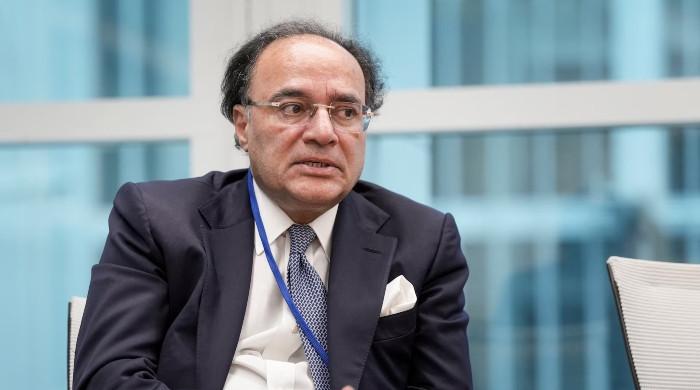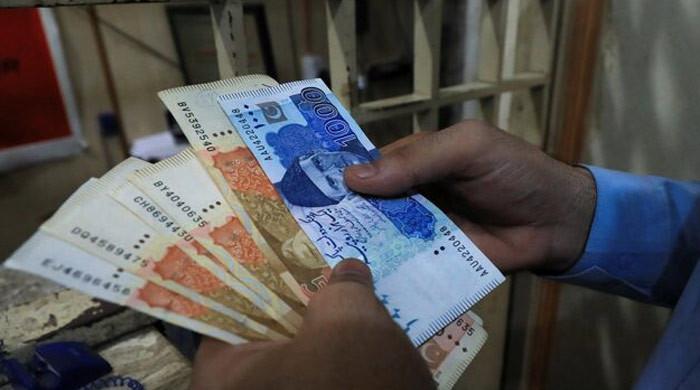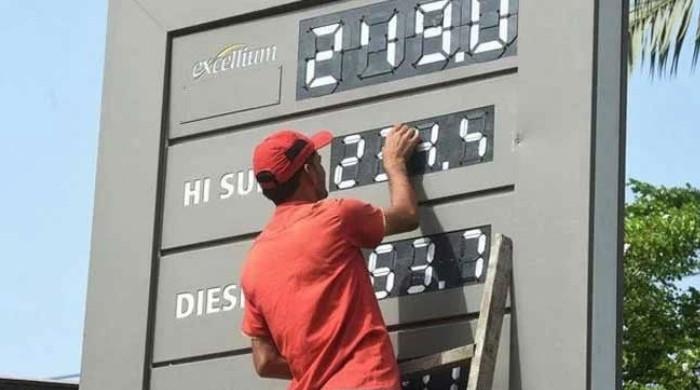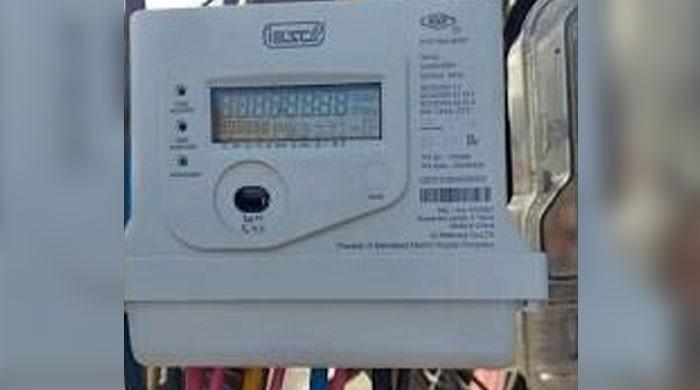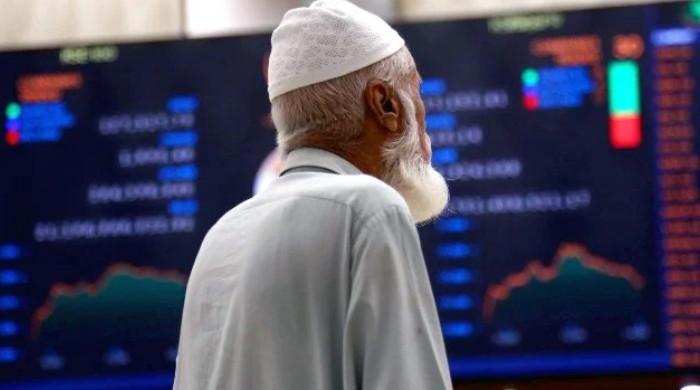Pakistan to attend IMF, World Bank meeting in US this week
Revival of IMF programme still remains a far cry with widening gap of twin deficits, says report
April 18, 2022
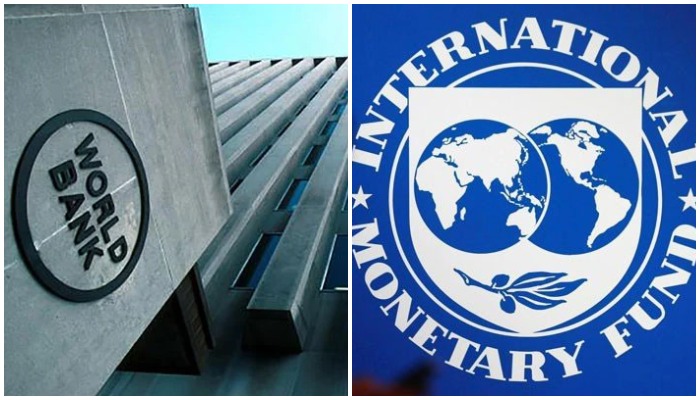
- High-profile Pakistan delegation set to attend upcoming annual spring meeting of Breton Wood Institutions.
- Revival of IMF programme still remains a far cry with widening gap of twin deficits, says news report.
- Miftah Ismail likely to accompany delegation after removal of his name from ECL.
ISLAMABAD: A high-profile Pakistan delegation is set to attend the upcoming annual spring meeting of the Breton Wood Institutions (BWIs) such as the International Monetary Fund (IMF) and World Bank (WB), in Washington, and likely to make fresh contacts with the IMF on the sidelines of the meeting, The News reported.
However, with the existing widening gap on account of twin deficits, including the budget and current account deficits for this fiscal year, the revival of the IMF programme still remains a far cry.
A top government official confirmed that the Ministry of Finance will hold a technical meeting with the IMF this Friday but there is no virtual meeting scheduled for review talks at this point.
The potential prime minister's adviser on Finance, Miftah Ismail also confirmed the participation of the Pakistani team in the BWIs meeting.
The official delegation will comprise the finance secretary, State Bank of Pakistan (SBP) governor and additional secretary on external finance. There is a chance that Ismail also accompanies the delegation after his name is removed from the Exit Control List under the PML-N led federal government, the publication reported.
Finance Secretary Hamid Yaqoob told The News, “Discussions with the IMF are never halted. There was an interregnum because there was no finance minister. We have been sharing data with the IMF. Now with the spring meeting next week, our discussions have become more regular and focused on completing the 7th Review”.
However, he did not mention any specific time frame for the completion of 7th Review under the $6 billion Extended Fund Facility (EFF).
In the wake of yawning twin deficits, the revival of the IMF programme will be highly difficult.
Meanwhile, the government's decision to keep petroleum prices unchanged also sent out wrong signals to the IMF. Without changing the approach and doing away with the relief mechanism, the revival of the IMF programme will remain impossible.
When contacted, renowned economist Yousuf Nazar, who is also the author of a book on Pakistan’s economy, said that the POL [petrol, oil and lubricants] prices should be adjusted upward in a staggered or gradual manner. He proposed to adopt a comprehensive approach whereby the unjustified subsidies for big industrialists such as for fertilizer, sugar and other sectors to the tune of Rs1,000 billion per annum should be abolished and diverted towards financing targeted fuel subsidies.
He also proposed that the fixation of the pricing mechanism of POL products should be made transparent and a parliamentary committee should be formed for allowing a public hearing to ascertain the facts and then transparently place the price fixation mechanism.
He suggested that Russian oil should be purchased without violating international sanctions as being done by India. He said that there was a mechanism available where a payment system through a third country could be placed and Pakistan could import cheap oil with the help of such a mechanism from Russia.
He also proposed that the POL import on deferred payment from China and other friendly countries could also be explored under the comprehensive strategy to combat with the arising challenging situation faced by Pakistan’s economy.
Dr Khaqan Najeeb, the former adviser at the Ministry of Finance, told this reporter that subsidised energy pricing policies are a heavy burden on the exchequer and thus unsustainable. On the other hand, higher prices driven by the global commodity super-cycle and the effect of rupee adjustment are hard to pass to the consumers already reeling under inflationary pressures.
He said there was a dire need to show prudence over populism. The government has just come in and it is hoped that in the future, after taking stock of the situation, the pricing decision will be reconsidered. A possible way is to pass the prices of petroleum products gradually to the extent of covering the full cost of the products. The PDL and GST could be left at negligible levels.
Dr Khaqan explained that increasing the breadth and quantum of targeted subsidies is now possible because of new databases developed by the government to cover a larger populace. Other options like fuel cards linked to income support databases, especially for motorcycle users for up to a certain amount at discounted prices and diesel fuel cards for public transporters and agriculturists using tube-wells and tractors can be started. Targeted subsidies will help the government in taking the tough decision of eliminating general subsidies in the economy from which the rich and less privileged are all benefiting, he concluded.




